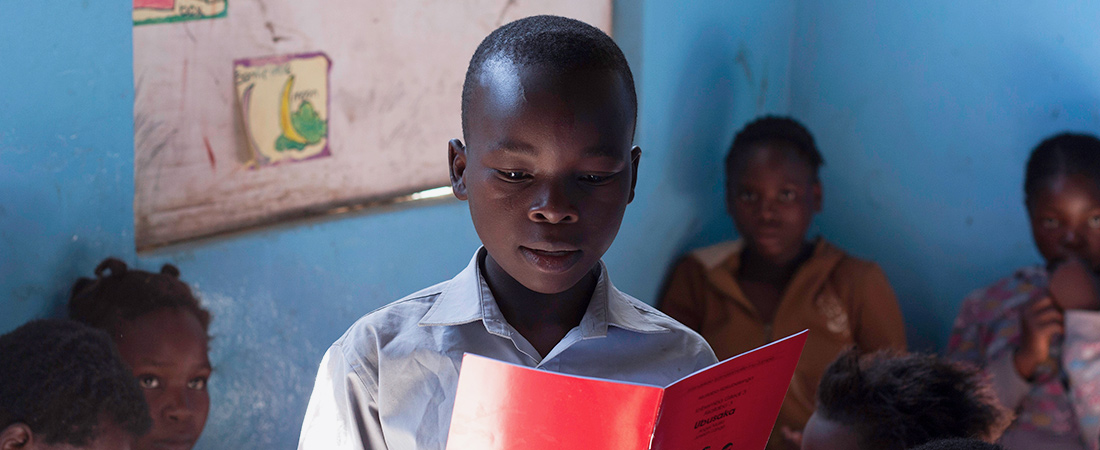
Literacy and mathematical programs deliver the promise of education to millions of children around the world.
We create and test learning experiences that lead to deep understanding and an ability to act thoughtfully upon the world. Whether in settings that are rich or poor in resources, we are committed to building sound foundations in literacy, science, and mathematics.
Through engaging classroom curricula, media instruction, digital tools, and teacher training, we equip children and young adults with the fundamentals they need to be successful—in school and in life.
Related Content
A Second Chance at School in Mali
In Mali, accelerated education is helping thousands of children get back to school.
Is Social Media Harmful to Students with Disabilities?
A new report on social media finds some benefits, but higher cyberbullying rates.
3 Ways to Stop the Summer Slide
Want to help kids keep learning this summer? Here are some tips for parents and caregivers.
How Schools Can Support Students Affected by Opioids
The trauma children experience as a result of opioid misuse at home can affect how they do in school—but schools can help.
3 Ways Schools Can Support Children Affected by the Opioid Crisis
Schools are uniquely positioned to address the needs of children exposed to trauma, says Shai Fuxman.
Accelerating Education in Liberia
An estimated 300,000 Liberian children do not attend school. What’s being done to provide more access to education?
Projects
Resources
Here are a few of our resources on behavioral, physical, and mental health. To see more, visit our Resources section.
The purpose of this note is to detail an offer of support to national governments that are willing to develop sustainable financing strategies for national school feeding programs.
This evaluation of the Harnessing Youth Volunteers as Literacy Leaders (HYVALL) project in Senegal explores the potential links between specific elements of the intervention and student reading gains.
This paper explores how the Government of Mali, with support from the U.S. Agency for International Development and Education Development Center, Inc., used innovative tools and methods (including georeferencing, mapping, and school/village surveys) to better understand the twin challenges posed by home-school distance and inefficient teacher distribution in rural communities and why Mali chose an old-school solution: one-room, multi-grade schools equipped with trained teachers and appropriate materials.
Using data collected in Massachusetts, this study examines the relationships between schoolwide instructional observation scores and schoolwide student academic achievement and growth in state-desi
This report summarizes a study conducted by EDC as part of JFF's Student-Centered Learning Research Collaborative's investigation of student-centered approaches to improve outcomes for learners of all backgrounds, particularly those who have been marginalized or underserved by the current system.
EDC’s basic education programs in low-resource contexts support the development of learners who can use language to explain and analyze the world around them and who have the foundational skills to think critically and solve the range of problems they will encounter in school and life.
The Mali USAID/ PHARE (Programme Harmonisé d'Appui au Renforcement de l'Education) program supports the Malian Ministry of Education's efforts to improve the quality of elementary education, with a
In this summary report, the authors share findings and recommendations from their review of existing research, exploration of teacher professional development programs, and interviews with teachers.
This study describes high school graduation outcomes for students who entered New York City schools in grade 5 or 6 as English learner students, including estimating on-time, five-year, and six-yea
Overview of EDC's higher education institution experience providing market-relevant job skills for youth, resulting in successful entry points into the world of work.